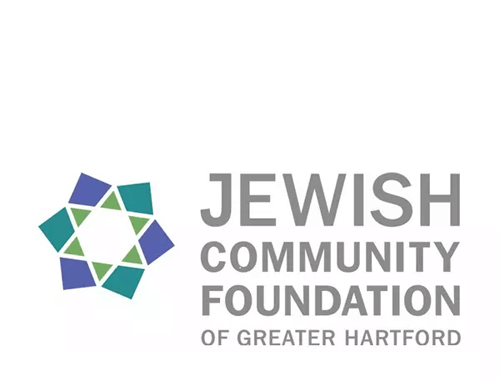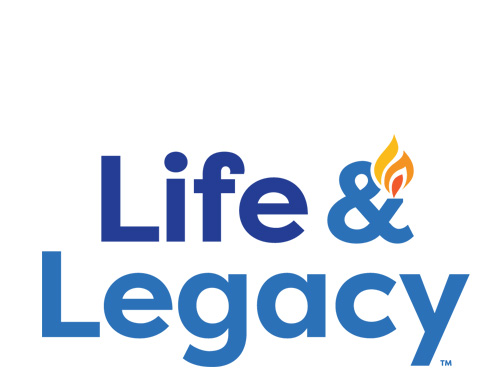- about
- academics
- current parents
- student life
- Prospective Parents
- Donate
Schechter Shavua: January 6, 2023
Mi Dor Le'Dor Program Shares a Richness of Cultures and Traditions
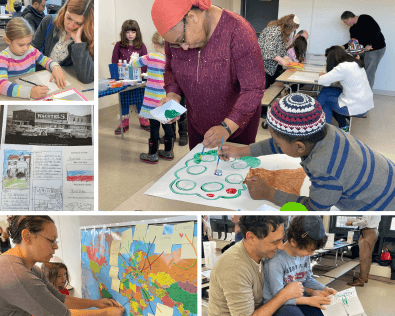 As part of a new K-4 Social Studies curriculum, the Anafimclass (grades 1-2) delved into history and what it entails to be an historian. Students discussed the richness of understanding that every person and community has a past. They learned that one way to understand the past is to examine artifacts and ask questions. Students put these new skills to work as they devised a series of questions to ask their parents. The interviews with their parents dovetailed with their learning about the first family (Abraham and Sarah through the twelve tribes) and ultimately formed the basis for a family learning program.
As part of a new K-4 Social Studies curriculum, the Anafimclass (grades 1-2) delved into history and what it entails to be an historian. Students discussed the richness of understanding that every person and community has a past. They learned that one way to understand the past is to examine artifacts and ask questions. Students put these new skills to work as they devised a series of questions to ask their parents. The interviews with their parents dovetailed with their learning about the first family (Abraham and Sarah through the twelve tribes) and ultimately formed the basis for a family learning program.
One special morning in December, family members came to Schechter to share in the rich stories the students had uncovered. Children, along with their special adults, graphed their origins and found those countries on a large map. As each family added their country(ies), a rich tapestry developed so that by the end of the program, it was beautiful to see the many countries comprising everyone’s heritage. They explored the Heritage Museum featuring photos of the students’ special family artifacts and their written pieces explaining what they learned from those artifacts. The children were able to trace the ways in which their cultural heritage influenced their generation. Families also played a memory game with English and Hebrew family words and assembled a family tree for the First Family.
After gaining a genuine appreciation for the ways in which history has influenced them, families were given a variety of supplies and were tasked with creating a special family tree using the list of names that they had brought in. Some families made more traditional-looking family trees, while others represented their lineage through other shapes. Some used natural colors, while others were filled with rainbows. Each project was as unique as the families who came to learn and create together and show us how we shape our traditions.
Click HERE to see photos from our fantastic Mi Dor Le'Dor Program.
Ilanot Parents Share a Havdalah Experience
On a Saturday night in December, the Ilanot class (Kindergarten) participated in a culminating learning event with their parents to share their learning about Havdalah. Students have worked for the past three months learning about what Havdalah is, why it takes place on Saturday evenings, and all of the blessings that are part of the service. Rabbi Berger joins the Ilanot class every Monday morning to start their week with Havdalah, and the students excitedly shared all that knowledge with their parents. With the help of their parents, each student created their own Havdalah set to take home and use for all the Saturday nights to come!
Click HERE for photos of the Ilanot Havdalah program.
Dramatic Play Helps Imaginations and Empathy Thrive
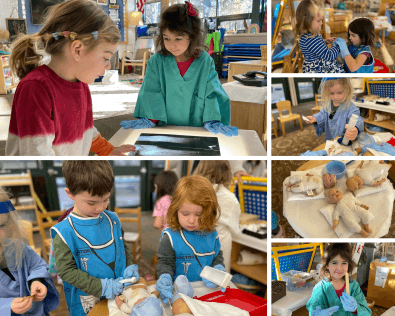 The Shorashim Alef Medical Clinic (EC 3-4) is open for business in the dramatic play center! The clinic is equipped with all you need to care for bumps, bruises, sneezes and wheezes!! Medical technicians wearing scrubs and white coats are available to examine and bandage any sick or injured baby dolls! X-Rays are carefully inspected and analyzed at the light table, so if you happen to have a broken bone that needs a cast or boot, the Shorashim Alef team has you covered! The children have thoroughly enjoyed exploring this authentic dramatic play center. This unit also provides students with the opportunity to express the genuine care and kindness they feel for one another, and we love seeing this empathy develop among our students!
The Shorashim Alef Medical Clinic (EC 3-4) is open for business in the dramatic play center! The clinic is equipped with all you need to care for bumps, bruises, sneezes and wheezes!! Medical technicians wearing scrubs and white coats are available to examine and bandage any sick or injured baby dolls! X-Rays are carefully inspected and analyzed at the light table, so if you happen to have a broken bone that needs a cast or boot, the Shorashim Alef team has you covered! The children have thoroughly enjoyed exploring this authentic dramatic play center. This unit also provides students with the opportunity to express the genuine care and kindness they feel for one another, and we love seeing this empathy develop among our students!
Parashat Vayehi—Loss and Gratitude
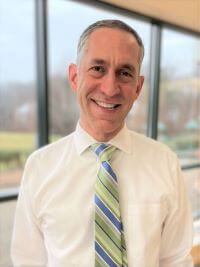 Jacob spent the first part of his life in a state of craving, and the second part consumed by painful longing. When young, he twice swindled his brother, once for a birthright (representing a greater portion his father’s estate), and again for the firstborn’s blessing (representing both a greater spiritual blessing, and a sign of future leadership). Why? Because on some level, what he had wasn’t enough; he always wanted more.
Jacob spent the first part of his life in a state of craving, and the second part consumed by painful longing. When young, he twice swindled his brother, once for a birthright (representing a greater portion his father’s estate), and again for the firstborn’s blessing (representing both a greater spiritual blessing, and a sign of future leadership). Why? Because on some level, what he had wasn’t enough; he always wanted more.
As he gets older and builds a family, the craving seems to dissipate. When he meets his estranged brother, he even says, “God has favored me, and I have all [I need]” (ki hanani Elohim, ve-khi yesh li khol). Soon later, though, he suffers a terrible set of losses, including the deaths of his beloved wife Rachel and his father Isaac. His family is torn apart when he loses his beloved son Joseph. Following these losses, he is a broken man; he refuses to be comforted. We cannot fault Jacob for his grief! But it’s clear that Jacob is unable to count his remaining blessings, or to value and love the family he had. He was consumed with longing for what he no longer had.
In this week’s parashah , though, Jacob comes to Egypt and is finally reunited with Joseph, and we finally see something different. When blessing his children, he is able to say, Birkhot avikha gavru al birkot horai, “Your father’s (i.e. My) blessings have exceeded my parents’ blessings.” He’s not just happy to have Joseph back—he expresses gratitude for that earlier—but that he is able to look at his whole life, and focus on the good.
Over the course of our lives, we will all suffer losses. It is simply part of being human. It is important to accept the pain of those losses as we find our own way to grieve. At the same time, that pain doesn’t have to keep us from finding grounds to be grateful for what we have. Like Jacob, we can try to remind ourselves of all our blessings, and that very awareness can bring us powerful comfort. And Jacob’s renewed gratitude came in his 130th year! It is never too late to adopt a stance of gratitude.
Shabbat shalom,
Rabbi Jonathan Berger
Head of School
Questions for the Shabbat table:
1. Do you think Jacob genuinely changes over the course of his life? Or is he still, on some essential level, the same as an elder as he was as a youth?
2. When, in your life, have you found it hardest to feel grateful? What helped you find a way?
Solomon Schechter Day School
of Greater Hartford
26 Buena Vista Road
West Hartford, CT 06107
© Solomon Schechter Day School of Greater Hartford | Site design Knowles Kreative

